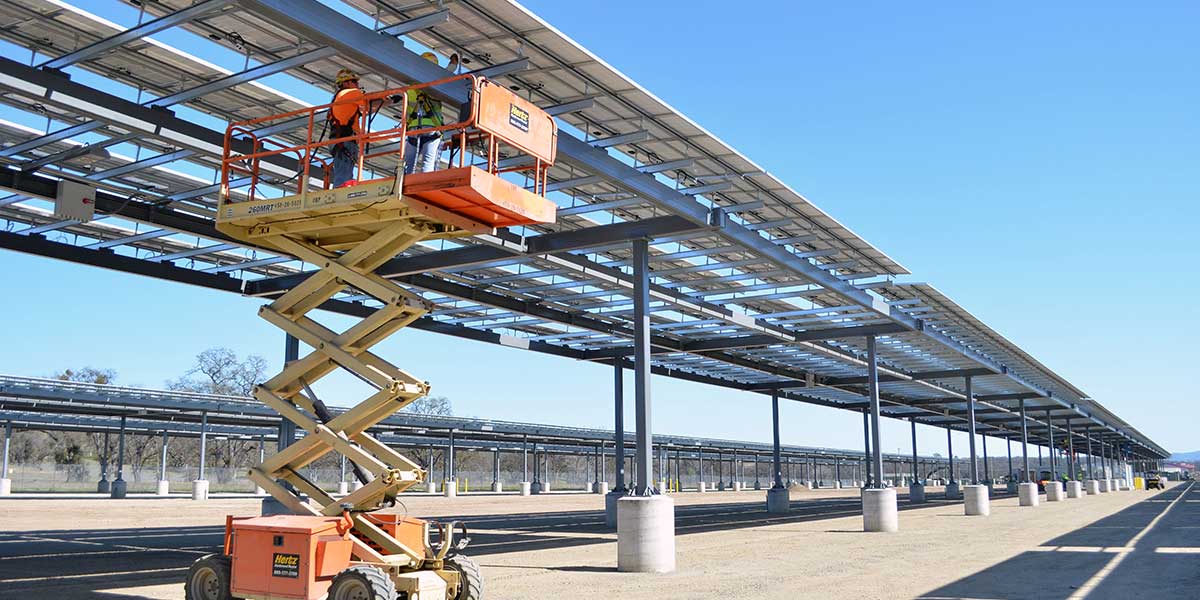Energy Resilience Impact of Supply Chain Network Disruption to Military Microgrids - Energy Academic Group

Solar microgrid project at Fort Hunter Liggett, California. (U.S. Army photo by John Prettyman)
Energy Resilience Impact of Supply Chain Network Disruption to Military Microgrids
By Douglas L. Van Bossuyt, PhD, Assistant Professor, Systems Engineering Department
An article titled “Energy Resilience Impact of Supply Chain Network Disruption to Military Microgrids” was recently published in the MDPI Infrastructures Journal, specifically in the Special Issue on Infrastructure Resilience in Emergency Situations that develops a method to analyze potential microgrid resilience issues for naval bases due to failures in energy supply chains. The work is part of LT Edward Anuat’s master’s thesis. LT Anuat graduated in December 2021 from the Naval Postgraduate School’s Systems Engineering master’s program and is now with Commander, Naval Air Force Atlantic to support the construction, maintenance, and modernization of the fleet’s aircraft carriers.
LT Anuat found that many bases credit diesel generators and on-site fossil power plants as integral parts of resilient microgrids. However, some bases may only have a few days of diesel and other fossil fuels on hand. Regular deliveries of fuel are expected during situations where on-site generation is required to support mission-critical loads. In many situations, this is an acceptable assumption. However, in the event of a significant supply chain disruption, fuel delivery could be jeopardized which in turn could reduce the ability of base microgrids to deliver mission-critical power where it’s needed and when it’s needed.
Regional disasters such as storms, earthquakes, tsunamis, and civil unrest can disrupt fuel supplies. Similarly, near-peer competitors can disrupt fuel delivery such as with the recent Colonial Pipeline cyber-attack. Even when multiple suppliers are contracted to deliver fuel to a base, there may be bottlenecks in the upstream supply network that are not fully understood and accounted for in base electrical energy resilience analyses.
To better understand the potential risk that over-reliance on fuel delivery during a grid outage or other scenario where on-site generation is needed, LT Anuat utilized an integrated discrete-time Markov chain and dynamic Bayesian network approach, where he investigated disruption propagation throughout a supply chain network and quantified its mission impact on an islanded microgrid. LT Anuat proposed a novel methodology and an associated metric termed “energy resilience impact” to identify and address supply chain disruption risks to energy security. The proposed methodology addresses a gap in the literature and practice where it is assumed supply chains will not be disrupted during incidents involving microgrids.
LT Anuat worked with Dr. Douglas L. Van Bossuyt and Dr. Anthony Pollman, both with the NPS Systems Engineering Department, as part of his master’s research. His timely work has already seen interest in NAVFAC and elsewhere to better prepare naval bases for future disruptions so that bases can stay in the fight and assure critical mission success.
Learn more
Read the full article at https://doi.org/10.3390/infrastructures7010004
Email Dr. Van Bossuyt at douglas.vanbossuyt@nps.edu
Quarterly Newsletter
Surge is published quarterly by the Energy Academic Group and covers a divese range of energy-related topics. View archive

